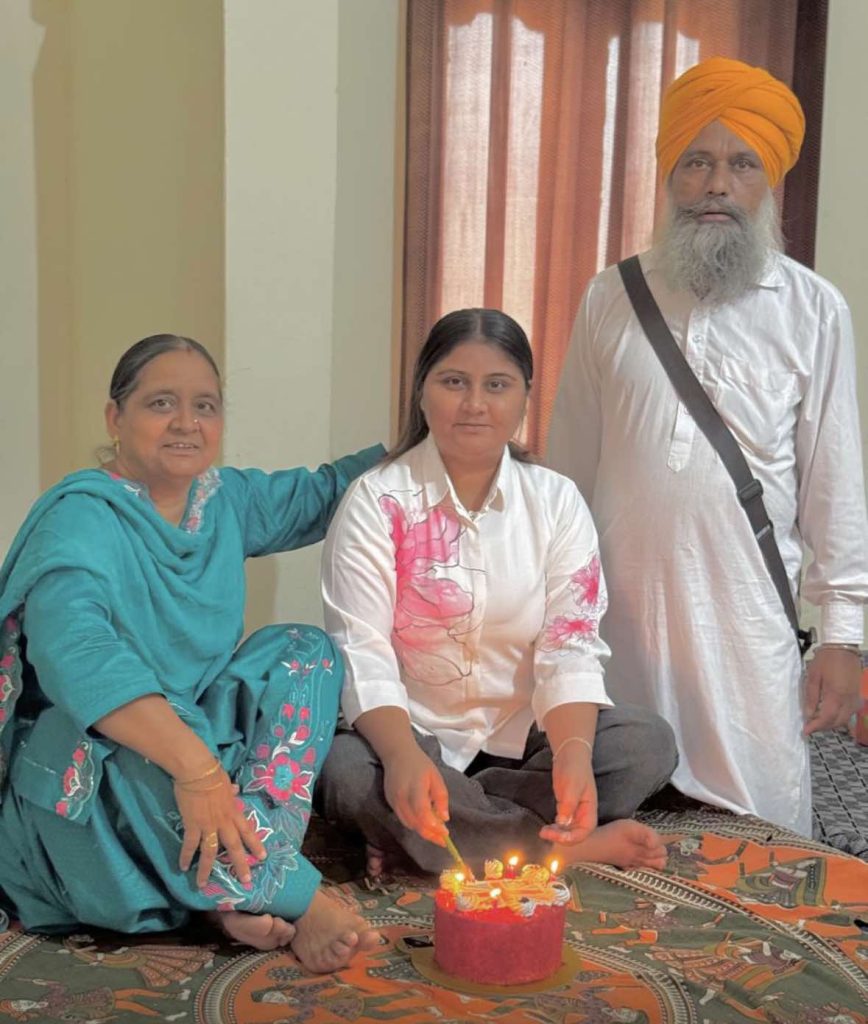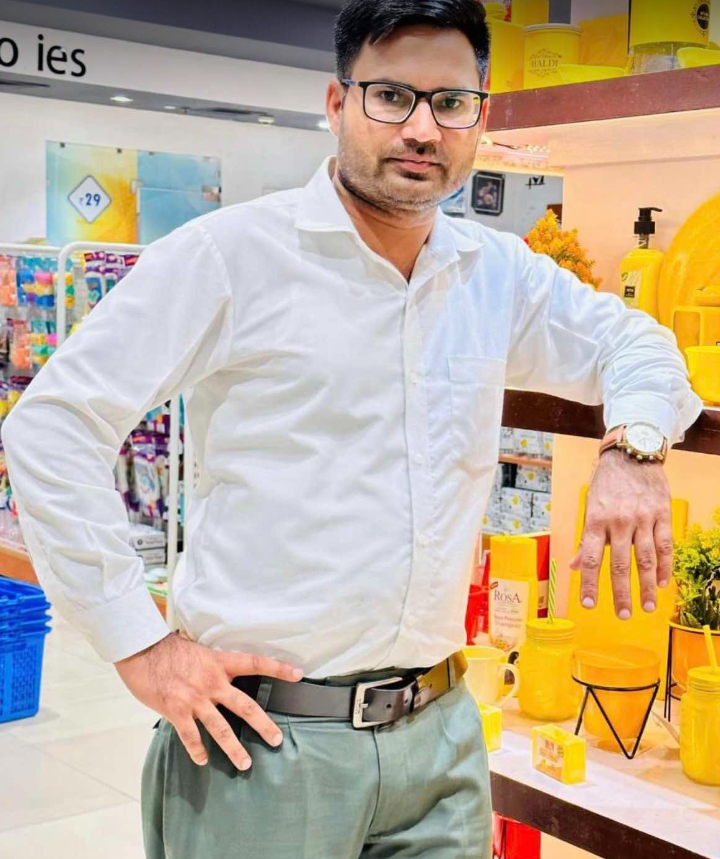o seek better opportunities abroad, only to be met with uncertainty, exploitation, and shattered dreams.
“I wanted to help in the UK, learn new skills, and then go back to India to help people there,” Princejot explained. “There isn’t the same opportunity for advanced medical training in India. This was a way to gain valuable experience.”

After qualifying as a registered nurse, Princejot worked for four years at the Jaipur Health Care & Test Tube Baby Centre in Bhatinda. Despite her skills and experience being in high demand, she sought further development in the UK, where healthcare workers were being recruited to fill critical shortages. Encouraged by the promise of a better future, Princejot and her family pooled their life savings to finance her move abroad.

Her introduction to the UK care sector was orchestrated through an agent named Ram Maahi, who claimed extensive experience in arranging visas and work placements. Operating through his company, Sparkline Immigration Services, he promised to secure her a role in a UK care home. However, what initially seemed like a path to opportunity quickly turned into a costly and uncertain venture for Princejot and her family.

“We paid the agent 2.6 million rupees, which is just over £23,000 at current exchange rates,” she said. “My family and I paid in instalments by cheque. Later, I found out that the visa only cost £570. I felt cheated, but at the time, I believed he was helping me.”
This was just the beginning of the mounting expenses. Princejot also had to pay an additional £500 for her flight with Virgin Airlines to make the journey from India to the UK. Despite the growing financial burden, her family remained hopeful, trusting that their investment in her future would ultimately pay off.
“When the visa was arranged, the agent invited my whole family to his office. We were so happy. It felt like all our hard work and savings had paid off,” she recalls. But this joy was to be short-lived.

A difficult start at Rickeston Mill Care Home
Princejot arrived in Pembrokeshire in May 2024, ready to start her new job at Rickeston Mill Care Home. The care home had recently come under new ownership. Shruti Gurappadi , a registered nurse, and her husband Surya were now in charge having just taken the reins. However, from the outset, Princejot felt ill-prepared for the role.
“The training wasn’t enough,” she lamented. “I was thrown in at the deep end. This wasn’t the kind of work I was used to. I’m trained in working with children and medical patients, but this was very different.”

Despite her nursing background, she struggled to adapt to elderly care. Although some minor incidents occurred during her adjustment period, she believed they were not significant enough to justify the treatment she received.
“I was trying my best. The residents were very kind to me, and I was one of their favourite carers. But I wasn’t given the proper support or training to succeed,” she said.
A colleague, who wished to remain anonymous, confirmed the lack of sufficient training provided to staff at the care home. “We were all thrown in with little guidance. The same thing happened to Princejot. She was a good worker, and many of the residents were upset when she was suddenly no longer there.”
When approached for employment records, Rickeston Mill declined, citing privacy concerns and GDPR regulations. However, Princejot provided a copy of her staff feedback, which highlighted her positive contributions. Despite the common challenges new employees face, some of the feedback underscored her kindness, compassion, and dedication to the residents.
Feedback forms, filled in by several staff members before a review meeting into her performance did throw up some areas of concern, and areas of improvement were needed. However in those same forms, Princejot was recognised for her eagerness to learn and her efforts to communicate effectively with the residents and their families. Given that she was navigating her first few months in a new country, her ability to adapt was commendable.
‘Unable to discuss details’
When contacted for expliain their version of events, Surya Gurappadi of Rickeston Mill Care Home responded via email: “Due to our legal obligations under GDPR and privacy laws, we are unable to discuss specific details regarding individual employment matters.”
He continued: “Rickeston Mill Nursing Home adheres to the highest standards of care and follows established protocols for staff training, performance evaluation, and dismissal processes. All employees receive comprehensive training and support, including an induction period and regular updates, to ensure they are well-equipped for their roles.”
Regarding the appeals process available to her after being sacked, Gurappadi stated, “We have a formal process in place that allows dismissed employees to challenge decisions, ensuring fairness and impartiality.”
The care home insisted they recruit directly, without external facilitation, stating: “We remain committed to treating all staff, including those on sponsorship visas, in compliance with UK employment laws and consult regularly with our HR advisors to maintain best practices.”
‘The agent’s role’
Despite these assurances, evidence suggests that the agent in India was in direct contact with the care home via Indeed. Princejot claims that her job was sourced through her agent, who corresponded with the care home on her behalf. “He even set up the login details for Indeed and an email address for me, without my knowledge. He told me the money I paid was for his fee, the facilitation of sponsorship for the visa, and the visa fee.”

These practices raise questions about the care home’s awareness of common visa sponsorship scams and whether they believed they were communicating directly with the applicant or the agent.
A broader issue of exploitation
Princejot’s experience is not an isolated incident. In 2024, police in Mohali arrested owners of an immigration firm accused of defrauding several individuals of around Rs 12.45 lakh (approximately £12,200) by promising jobs abroad, only for the victims to discover their visas were fake. Similarly, in Delhi, a woman reportedly swindled approximately 150 people from India and Nepal, collecting over Rs 4 crore (around £392,000) with false employment promises. Additionally, Indian migrant workers in New Zealand paid between $15,000 and $40,000 NZD (approximately £7,200 to £19,200) to agents for visas and jobs, only to find themselves stranded without employment.
These incidents highlight the importance of thorough verification when seeking overseas employment and the dangers of paying large upfront fees to unregistered recruitment agents.
A struggle for justice
Princejot’s situation is a stark reminder of the exploitation faced by migrant workers. A young woman with a secure job as a nurse in India came to the UK to improve her life and support her family, only to be caught in a web of deceit. While there is no evidence suggesting that her employer was aware of the payment to the agent, there are certainly questions about how they managed her employment.

“If this was a legitimate job offer, and I was meant to remain at the care home, then surely the care home would have informed HMRC of my employment and paid my National Insurance contributions and tax,” she said.
According to the HMRC app, no such payments have been made, and her National Insurance number does not appear on her payslips.
The deductions amount to around £2,000, leaving Princejot penniless in the UK. She is now desperately trying to find employment.
With only two months left to secure a job before being forced to return to India, Princejot’s ordeal is a sobering illustration of the challenges faced by those seeking a better future abroad.
The agent, Ram Maahi, who we initially spoke to on the telephone is now refusing to answer this newspaper’s questions. In that initial call he said that most of the money that he was sent was forwarded to a third party. He could not say who that was. Is he lying?
Who, if anyone, will be held accountable for the exploitation of those travelling overseas to work in Pembrokeshire, like Princejot Kaur?
And what can be done to protect others in the future?















